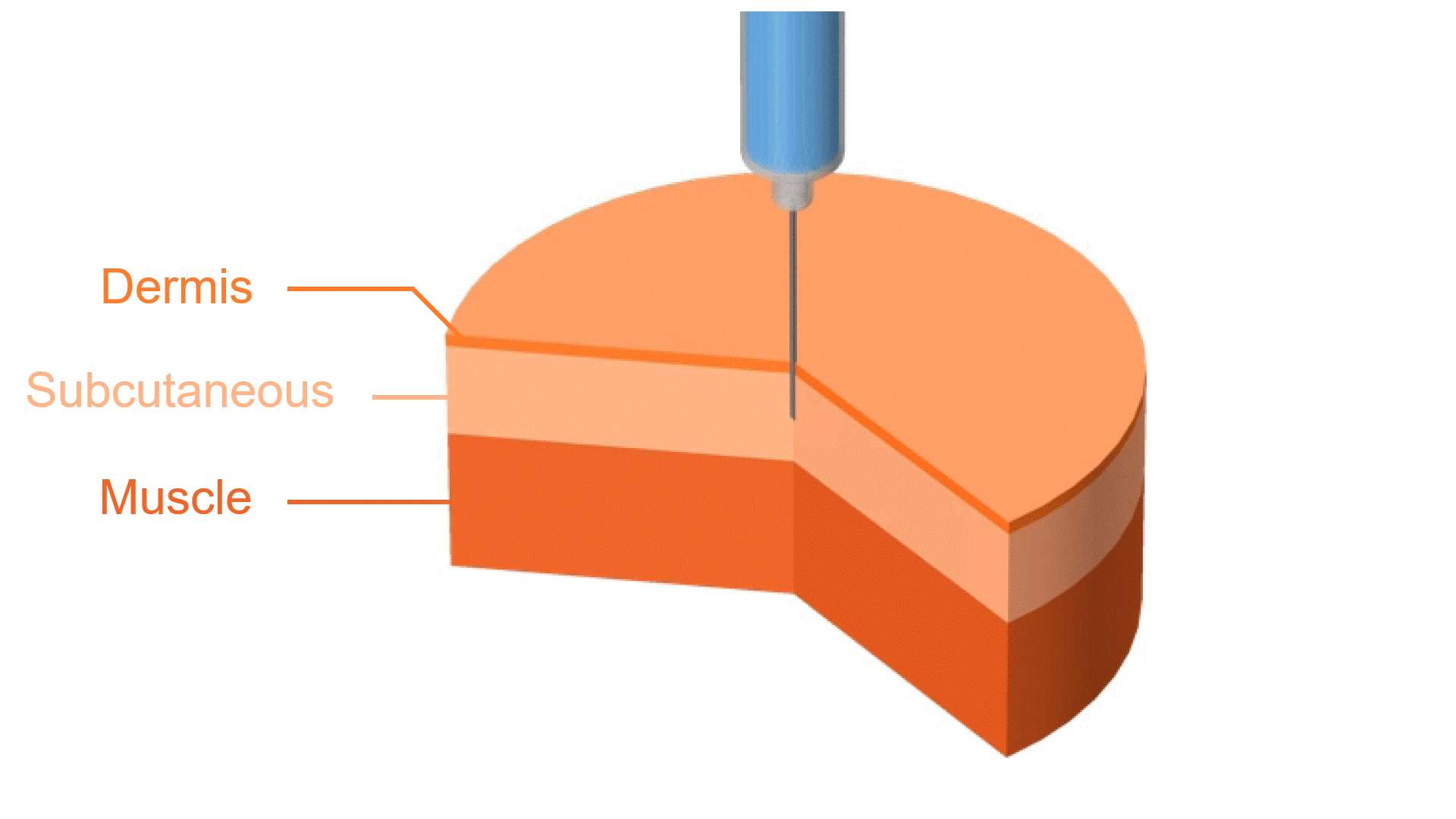Technical Challenge
Combination products are medical devices that contain a pharmacoactive drug for automated and controlled delivery. Many such products, including prefilled syringes and autoinjectors, deliver drugs to patients via subcutaneous injection. In designing such products, precise control of delivery dose, rate, and force is necessary to ensure satisfactory patient outcomes. Accurate predictions of these performance metrics can be
obtained using computational fluid dynamics (CFD) simulations. Such simulations not only support combination product development by reducing experimental lead times and cost, but also provide a physical understanding and intuition for how controllable parameters (dose volume, concentration, and flow rate) impact key quality attributes of needle-based subcutaneous injection (injection time and force).
Veryst Solution
Veryst leveraged multiphysics simulation to model needle-based subcutaneous injection, enabling precise prediction of critical metrics such as injection force, delivery time at specified flow rates, surface rise (“bleb” formation), and three-dimensional drug bolus dispersion. The simulation framework captures the complex, coupled dynamics between fluid flow in the tissue’s porous network and the mechanical deformation of biological tissue—where injected fluid induces local swelling, alters porosity, and modulates permeability. This interplay governs drug spread and uptake, resulting in signature ellipsoidal bolus shapes and measurable skin responses.
For high flow rates (>5 mL/min) and volumes (>10 mL), simulations predict significant tissue pressure and transient bleb formation on the skin surface, with delivery times extended to tens of seconds and forces potentially exceeding tens of Newtons. Such comprehensive simulations support evaluation and optimization of injection device parameters, including needle gauge and flow rate, allowing developers to fine-tune injection performance for a given drug formulation and maximize both efficacy and patient comfort.
Conclusion
Veryst used multiphysics simulation to model subcutaneous injection into the skin. Simulations such as these enable prediction of the drug bolus shape and evolution, injection time, and injection force, facilitating the design and operation of combination products for drug-delivery applications.
